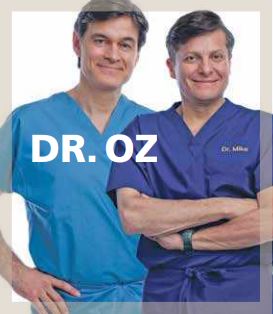
You’d think by now that the confusion about how to manage elevated lousy LDL cholesterol levels and boost low levels of good-for-you HDL cholesterol would be behind us.
But headlines like: “People with high cholesterol should eliminate carbs, not saturated fat” that are making the rounds these days have got folks thinking they can chow down on red meat and should shun whole grains if they want to be heart healthy. YIKES!
The study fuelling this new confusion is worth paying attention to, but it has to be put in context, and you need to read the fine print. Researchers from the University of South Florida published a study in the journal BMJ Evidence-Based Medicine that was looking at how to help folks who have what’s called familial hypercholesterolemia get it under control. Familial hypercholesterolemia is a genetic disorder that causes people to have cholesterol levels two to four times higher than average. It is notoriously difficult to rein in and, if untreated, is associated with a 20-fold increase in risk of premature coronary heart disease.
Their conclusion was that decades of advice that these folks should curb intake of saturated fat is misplaced — sat fat doesn’t boost cholesterol levels. What does imperil heart health, and should be eliminated, say the researchers, is sugar from carbs, particularly sweets and bread (no whole grains in the lot).
Well, that makes some sense. We’ve long said added sugars and refined carbohydrates are the nukes of nutrition. But the study overlooks one important fact: Saturated fat intake, as well other components of meat, boosts bodywide inflammation. And chronic inflammation damages everything from arterial flexibility to brain function and impairs healthy gut, immune and endocrine function, upping the risk for heart attack, stroke, cancers, diabetes and obesity.
Clearly when you want to protect your cardiovascular system, you have to consider more than just cholesterol numbers. So in addition to elimination of refined carbs and added sweets, to genuinely reduce your risk of cardiovascular woes — whether your lousy LDL cholesterol is elevated because of an inherited risk or poor lifestyle choices or both — here are smart, easy and rewarding steps to take.
1. As you banish added sugars, refined carbs AND most saturated fat, opt for inflammation-soothing nutrients and carbohydrates found in seven to nine servings of fruits and veggies, and two serving of whole grains daily. A low-fat, plant-based diet can typically reduce LDL levels by at least 15 per cent. And if you eat oats, beans, barley and other foods high in soluble fibre, as well as soy protein, nuts, wheat germ, wheat bran, almonds, Brussels sprouts and other foods containing substances called phytosterols, a University of Toronto study found you can lower LDL cholesterol by nearly 30 per cent in just four weeks.
2. Exercise regularly. Moderate exercise boosts healthy HDL cholesterol and stimulates enzymes that help move lousy LDL cholesterol from the blood to the liver for excretion. It also packages LDL for transport in the blood in larger, fluffier particles that do less damage than small ones that more easily invade the lining of blood vessels. For some folks, exercise can bring down LDL levels by up to 20 per cent.
3. Talk to your doctor about taking a statin. Not only do they cut the risk of dying or having a heart attack or stroke by nearly 50 per cent, according to a 14-year study, they also may starve cancer cells to death and may help control the progression of osteoarthritis if taken for five or more years. One study of veterans without elevated cholesterol levels found that even when statins were started at age 75, they decreased all cause mortality (over the length of the study) by 25 per cent.
So take heart by sticking with fruits and vegetables, 100 per cent whole grains and unrefined carbs; cut way, way back on inflammationcausing saturated fats; and talk to your doc about taking a statin.
Mehmet Oz, M.D. is host of “The Dr. Oz Show,” and Mike Roizen, M.D. is Chief Wellness Officer and Chair of Wellness Institute at Cleveland Clinic. To live your healthiest, tune into “The Dr. Oz Show” or visit www.sharecare.com. (c)2020 Michael Roizen, M.D. and Mehmet Oz, M.D. Distributed by King Features Syndicate, Inc.
-Michael Roizen M.D & Mehmet OZ M.D
